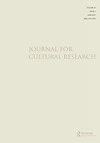叙事文学文本中(白人)工人阶级身份的构建及其对社会文化和政治经济不平等的贡献
IF 0.6
Q1 CULTURAL STUDIES
引用次数: 0
摘要
摘要本文运用弗雷德里克·詹姆森的意识形态理论,通过对当代文学文本的选择,追溯工人阶级和白人工人阶级人物的表征,展示了文学中(白人)工人阶级身份的建构是如何受到政治和媒体中(白人工人阶级)主流表征的影响并反馈到其中的,从而助长了社会文化、金融和政治排斥的循环。这篇文章继续认为,英国小说中,特别是在伦敦和东南部,缺乏全面而发达的白人工人阶级角色,当代作家继续依赖典型化的表现,而不是审问他们,因此仍然是边缘化(白人)工人阶级的反馈循环的同谋。总之,有人提出了一个论点,支持在公共舞台上开辟空间,让边缘化群体的想象和真实的个人声音被听到,提供更直接的代表渠道,并审问用来维持这些群体的社会经济和政治排斥的指责叙事。本文章由计算机程序翻译,如有差异,请以英文原文为准。
The construction of (white) working-class identity in narrative literary texts and its contribution to socio-cultural and politico-financial inequality
ABSTRACT Using Fredric Jameson’s theory of the ideologeme to trace representations of working- and white working-class characters through a selection of contemporary literary texts, this article shows how the construction of (white) working-class identity in literature has been influenced by, and fed back into, mainstream representations of the (white) working class in politics and media, thus contributing to cycles of socio-cultural, financial and political exclusion. This article continues by arguing that there is a lack of rounded and developed white working-class characters in British fiction, specifically in London and the South-East, and that contemporary authors continue to rely on typified representations rather than interrogate them, therefore remaining complicit in feedback loops that work to marginalise the (white) working class. To conclude, an argument is put forward in support of opening up space in the public arena for both imagined and real individual voices from marginalised groups to be heard, providing more direct access to channels of representation and an interrogation of the blame narratives that are used to maintain these groups’ socio-economic and political exclusion.
求助全文
通过发布文献求助,成功后即可免费获取论文全文。
去求助
来源期刊

Journal for Cultural Research
CULTURAL STUDIES-
CiteScore
1.40
自引率
0.00%
发文量
23
期刊介绍:
JouJournal for Cultural Research is an international journal, based in Lancaster University"s Institute for Cultural Research. It is interested in essays concerned with the conjuncture between culture and the many domains and practices in relation to which it is usually defined, including, for example, media, politics, technology, economics, society, art and the sacred. Culture is no longer, if it ever was, singular. It denotes a shifting multiplicity of signifying practices and value systems that provide a potentially infinite resource of academic critique, investigation and ethnographic or market research into cultural difference, cultural autonomy, cultural emancipation and the cultural aspects of power.
 求助内容:
求助内容: 应助结果提醒方式:
应助结果提醒方式:


